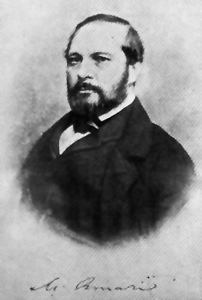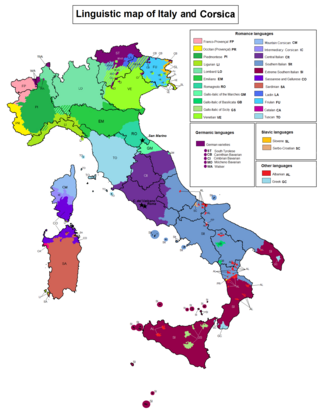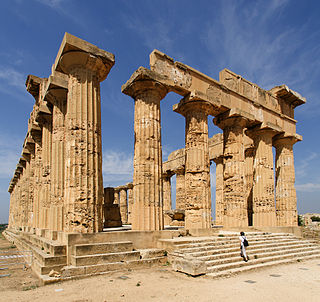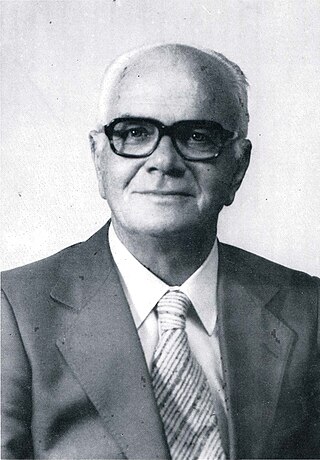Related Research Articles

Year 1143 (MCXLIII) was a common year starting on Friday of the Julian calendar.

Michele Benedetto Gaetano Amari was a Sicilian patriot, liberal revolutionary and politician of aristocratic background, historian and orientalist. He rose to prominence as a champion of Sicilian independence from the Neapolitan Bourbon rule when he published his history of the War of the Sicilian Vespers in 1842. He was a minister in the Sicilian revolutionary government of 1848–9 and in Garibaldi's revolutionary cabinet in Sicily in 1860. Having embraced the cause of Italian unification, he helped prepare the annexation of Sicily by the Kingdom of Sardinia and was active in his later years as a senator of the Kingdom of Italy.

The Kalbids were a Muslim Arab dynasty in the Emirate of Sicily, which ruled from 948 to 1053. They were formally appointed by the Fatimids, but gained, progressively, de facto autonomous rule.
Henri-Jean Martin was a leading authority on the history of the book in Europe, and an expert on the history of writing and printing. He was a leader in efforts to promote libraries in France, and the history of libraries and printing.

The War of the Sicilian Vespers or just War of the Vespers was a conflict that started with the insurrection of the Sicilian Vespers against Charles of Anjou in 1282 and ended in 1302 with the Peace of Caltabellotta. It was fought in Sicily, Catalonia and elsewhere in the western Mediterranean between the kings of Aragon on one side against the Angevin Charles of Anjou, his son Charles II, the kings of France, and the Papacy on the other side. The war resulted in the division of the old Kingdom of Sicily; at Caltabellotta, Charles II was confirmed as king of Sicily's peninsular territories, while Frederick III was confirmed as king of the island territories.

Jean-Pierre Vernant was a French historian and anthropologist, specialist in ancient Greece. Influenced by Claude Lévi-Strauss, Vernant developed a structuralist approach to Greek myth, tragedy, and society which would itself be influential among classical scholars. He was an honorary professor at the Collège de France.

Gallo-Italic of Sicily is a group of Gallo-Italic languages found in about 15 isolated communities of central eastern Sicily. Forming a language island in the otherwise Sicilian language area, it dates back to migrations from northern Italy during the reign of Norman Roger I of Sicily and his successors.

Ernst KitzingerFBA was a German-American historian of late antique, early medieval, and Byzantine art.

Xavier Tilliette was a French philosopher, historian of philosophy, and theologian. A former student of Jean Wahl and of Vladimir Jankélévitch, he was a member of the Society of Jesus (1938) and professor emeritus at the Catholic Institute of Paris (1969), having taught also at the Pontifical Gregorian University of Rome (1972), the Lateran University, and the Centre Sèvres in Paris.

The Villa Palagonia is a patrician villa in Bagheria, 15 km from Palermo, in Sicily, southern Italy. The villa itself, built from 1715 by the architect Tommaso Napoli with the help of Agatino Daidone, is one of the earliest examples of Sicilian Baroque. However, its popularity comes mainly from the statues of monsters with human faces that decorate its garden and its wall, and earned it the nickname of "The Villa of Monsters".

Agostino Paravicini Bagliani is an Italian historian, specializing in the history of the papacy, cultural anthropology, and in the history of the body and the relationship between nature and society during the Middle Ages.
Marius Canard FBA was a French Orientalist and historian.

Jole Bovio Marconi was an Italian archaeologist who graduated with a degree in the topography of ancient Rome from the Sapienza University of Rome and specialized at the Italian School of Archaeology at Athens. She married her colleague Pirro Marconi, whom she met in her studies in Athens.
Eugenio Manni was an Italian ancient historian.

The Roman amphitheatre of Syracuse is one of the best preserved structures in the city of Syracuse, Sicily, from the early Imperial period.

Claude Gauvard is a French historian and Middle Ages specialist. She has been the President of Société de l'histoire de France since 2009.
Henri Madelin was a French Jesuit priest and theologian.

Umberto Rizzitano was an Italian academic, known for reviving Arab-Islamic studies in the University of Palermo and Sicily, neglected since the death of Michele Amari.
Enrica Follieri was an Italian philologist and paleographer, specialized in Byzantine literature and hagiography. She spent her whole academic career at La Sapienza University of Rome.

Siculian is an extinct Indo-European language spoken in central and eastern Sicily by the Sicels. It is attested in less than thirty inscriptions from the late 6th century to 4th century BCE, and in around twenty-five glosses from ancient writers.
References
- 1 2 3 4 5 Brec Henri (in French). Océanides. Accessed January 2016.
- 1 2 Antonella Mulé (5 March 2002). Lauree honoris causa a Henri Bresc e Max Pfister: Due attenti osservatori della Sicilia medioevale (in Italian). Università degli Studi di Palermo. Archived 30 December 2002.
- 1 2 Bresc Henri (in French). Paris: Institut Européen en Sciences des Religions. Accessed January 2016.
- ↑ Abdelwahab Meddeb, Benjamin Stora (2013). A History of Jewish-Muslim Relations: From the Origins to the Present Day. Princeton; Woodstock: Princeton University Press. ISBN 9780691151274.